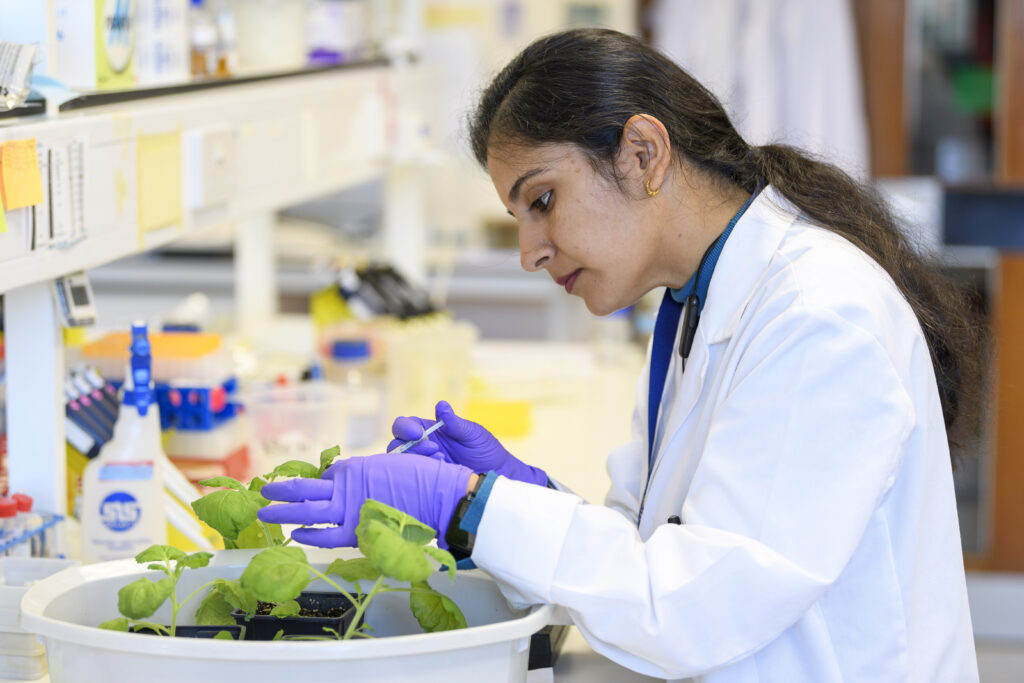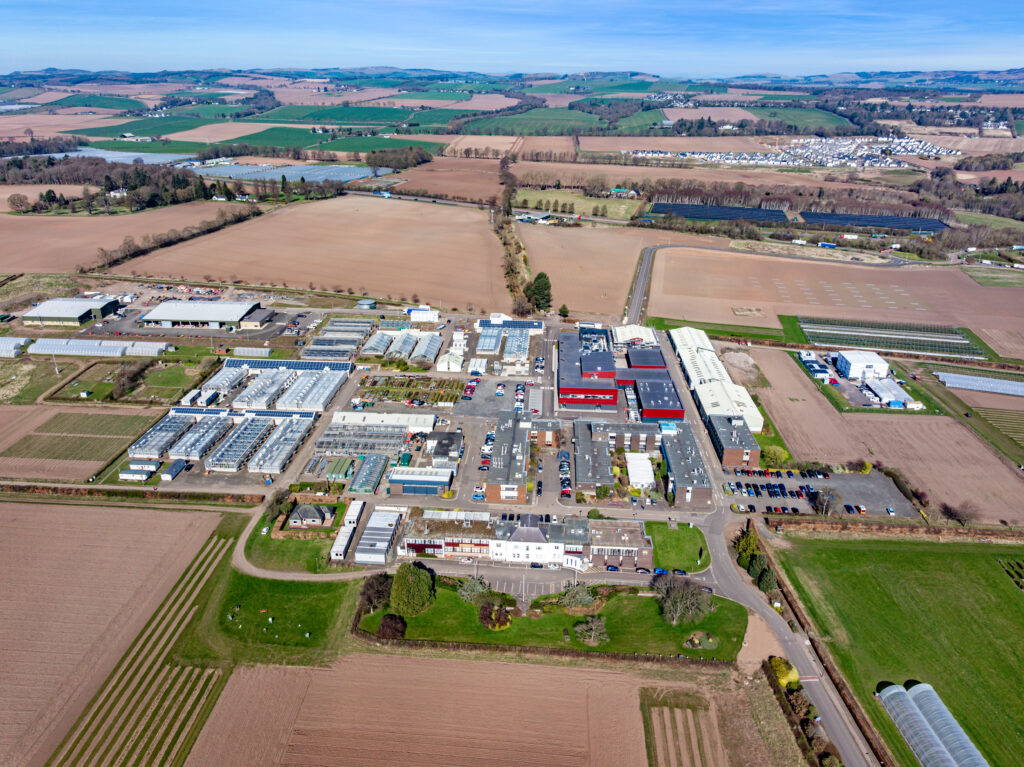The James Hutton Institute’s world class science delivers huge economic impact
The James Hutton Institute, one of the world’s leading scientific research institutions based in Scotland and at the forefront of transformative science for the sustainable management of land, crop and natural resources; has been recognised for its powerful economic impact and excellence in science.
Two independent evaluations confirmed an increase in its real-world value underpinned by globally recognised research.
A new economic impact report from BiGGAR Economics states that in 2023/24, for every £1 of funding the Hutton received from the Scottish Government, it delivered more than £15 in economic value for the UK economy, of which £9 was retained in Scotland and confirms the status of the Hutton as a key component of Scotland’s research and economic infrastructure.
£61.8 million of Gross Value Added (GVA) was retained close to the Hutton’s two main campuses: £40 million in Dundee city region; £22 million in Aberdeen city region.
The Hutton also supported 2,575 jobs in the reported year, of which 1,525 jobs were in Scotland and 740 jobs in the Aberdeen and Dundee city regions (410 jobs in Dundee City Region and 330 jobs in Aberdeen City Region).
Food and drink sector
The report evaluates Hutton science in specific sectors and shows that in 2024, Hutton’s research was worth £221.3 million to the UK food and drink sector, supporting around 1,185 jobs in the industry. One of the main reasons for the increase in GVA has been an increase in the value of commercial research contracts secured by the Hutton since 2016 from under £1 million to £2.6 million. This is particularly noteworthy because this period also saw the UK’s exit from the European Union, an event that had been widely expected to make securing research funding more difficult.
Another important change has been the emergence of a thriving and effective innovation ecosystem. An important catalyst for this has been the creation of the International Barley Hub and the Advanced Plant Growth Centre on-site, both of which were made possible by major investment through the Tay Cities Region Deal.
“It’s clear that investment in our excellent science makes an incredible contribution to the Scottish, UK and global economies and shows that science is a safe and productive investment. While the economic impact is large it is most visible the tip of the impact we have in terms of environmental social and economic benefits.”
Prof Colin Campbell, The James Hutton Institute


Climate change
Adaptation and mitigation in the face of climate change are important for the economy and the resilience of rural communities. The Hutton’s scientific expertise is shaping resilient agricultural practices, preserving biodiversity, protecting and restoring natural habitats, reducing the carbon footprint of agriculture, enabling societies to thrive in the face of a changing climate and contributing to the Scottish Government’s sustainability, environment, biodiversity, climate change and net-zero agendas. Such impacts are more difficult to quantify in economic terms but represent huge benefit in terms of preventive spend in the face of likely high climate costs. The Hutton’s action-based approach such the as the HydroGlen green hydrogen farm is innovating and setting out a blueprint for adaptation and mitigation in the rural sector.
Globally recognised science
This economic impact is a result of the Hutton’s unique research, which brings together expertise in both natural and social sciences. In a recent review of Hutton’s science conducted by international experts, it confirmed, without exception, the quality of science in each of its five Departments noting it variously as “excellent”, “outstanding”, “well respected” and “highly original”. The review process highlighted that the scale of the economic and societal contribution made by the Hutton is a result of its long-standing mission and ongoing focus on issues of strategic national (and international) importance, underpinned by decades of institutional experience, globally important collections of genetic resources and specialist research and demonstration facilities that have taken decades to accumulate.
Speaking of these findings, Professor Colin Campbell, CEO at the Hutton said, “It’s clear that investment in our excellent science makes an incredible contribution to the Scottish, UK and global economies and shows that science is a safe and productive investment. While the economic impact is large it is most visible the tip of the impact we have in terms of environmental social and economic benefits.
“We are grateful to our funders – particularly the Scottish and UK governments – who trust in our science and who are rewarded with the types of figures we are reporting today. We know we are in a race against time to address the far-reaching impacts of the climate and nature crises on our economic, environmental and societal sustainability and to protect our food, energy and water security. Hutton science shows the value of understanding our world better providing solutions that people need and want. Increased investment in science remains critical to our shared long-term goals”.
In recognising the values of these identified areas of work, the economic impact report provides evidence to support the case for continued investment in the Hutton’s research infrastructure, data and AI capacity, skills development and open science. The Hutton is now focused on securing the infra-structure funds for its campuses to develop new innovation clusters including a National Potato Innovation Centre at its campus near Dundee and the International Land Use Study centre at its Craigiebuckler campus.
Case studies
